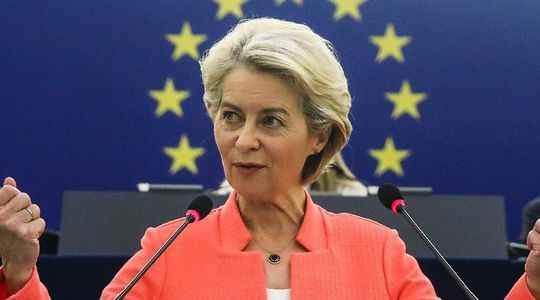Putin will also have “succeeded” in this! Whatever the outcome and the end of the war in Ukraine, among its counter-performances, we will count the launch of a real debate on Europe as a power. In fact, even European opinions that are the least fearful or distrustful of Moscow, in the west of the continent, have suddenly expressed since the Russian attack a thirst for protection which, from the top of her magisterium as President of the European Commission, very proactive attitude of Ursula von der Leyen. Thus the French position of the Macron-Le Drian duo should in principle be confirmed.
For five years, Paris has tried to make its partners aware of the need for greater autonomy vis-à-vis Washington and NATO in general. The ace ! so far, the EU has reacted strongly in its main area of original competence – the economy, trade, finance and other constituent sectors of the soft-power -, but there is nothing to indicate that the Europe-power, the one which would also assume a hard power, is working. Lack of capacity? Certainly not! Even without the British, the united Europeans still field a permanent seat on the Security Council, a nuclear deterrent, and the budgets, engineers, and manpower that could embody formidable geopolitical power. In reality, it is for lack of will that the Europe-power does not advance, or, more precisely, of two wills of a different nature but combined.
Memories of the Russian occupation
First, that of the states of Eastern Europe. The Poles and the Balts maintain the very burning memory of multi-secular Russian occupations and swear only by Washington, even beyond NATO, considering that only the United States will have both the will and the capacity to defend them effectively against an attack from their large eastern neighbour. Czechs, Slovaks, Romanians and even Bulgarians are hardly less vindictive and, in any case, none of these States maintains a Mediterranean, Middle Eastern, African or Indo-Pacific prism, nor aspires to intervene as a power in the world affairs.
An Eastern European diplomat recently reminded the author of these lines that it was not his country, but France, Belgium, the United Kingdom, the Netherlands and Portugal which had once colonized part of Africa and Asia, and that it was therefore up to them and not to Eastern Europe to bear the consequences. In short, the prospect of European or only French (and British?) protection does not convince almost anyone in the East, and the memory of the disastrous Munich agreements of 1938 probably does not help much. It is therefore logical that they have coolly welcomed Macron’s recent proposal for a political community. However, because of Brexit and their number, the Eastern European States have all the better captured the geopolitical center of gravity of the EU since Finland and Sweden will soon join NATO…
In Germany, a start of catching up
Then, as a second obstacle, there is the German case. It cannot be repeated enough to what extent a pacifism deeply rooted in the shame and cataclysm of the Third Reich prevails in public opinion. Paradox: it is the richest state that most rejects the status of global power, that is to say military as well as economic! The 100 billion euros released for defense in a few days in the emotion of the Russian attack in Ukraine? They are impressive, but are only the beginning of a catch-up after two decades of deliberate military impoverishment, far from the 2% defense spending demanded by the United States and observed by Paris and London.
Above all, if the 1949 constitution prohibiting the FRG at the time from projecting forces beyond its borders is not repealed, what will be the European benefit? As for the strategic bombers ordered by Berlin in April, they are neither French, nor Swedish, nor even British, but American, a choice of F-35 motivated by alleged technical quibbles!
It is therefore a strengthening of NATO that we are witnessing, more than the emergence of a Europe-power. How then to overcome this double contradiction, if not by creating a continental European core which, without replacing NATO or competing with it, would accompany it on specific issues that it would not like to deal with? However, the only credible core in terms of hard power would be a Franco-British tandem.
